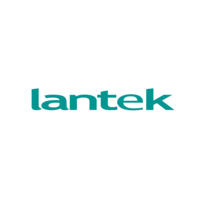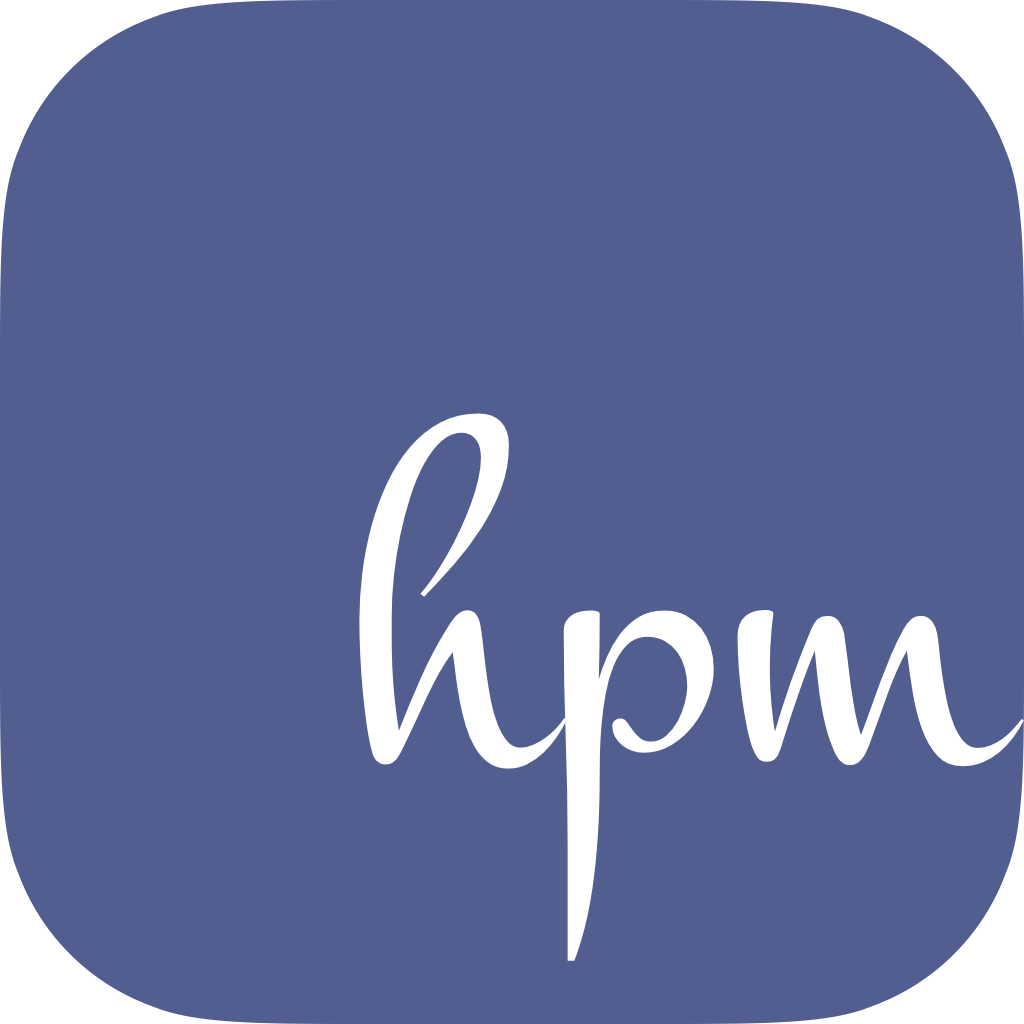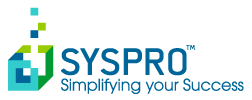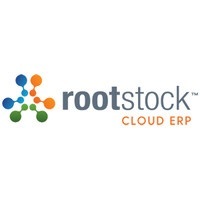Yes, production management software may be accessed from various devices and platforms. Most modern production management software is cloud-based, so users may access it from any internet-connected device. This implies that you can use the software on your desktop, laptop, tablet, or smartphone, independent of operating system. This enables seamless communication and streamlined productivity because team members may access the software from anywhere, at any time.
List of 20 Best Production Management Software
CatchApp Bookings is a scheduling solution for professionals and businesses. Say goodbye to the time-consuming task of managing appointments. With our efficient tool, save up to 5 hours every week. Customize your bookings page and let clients easily...Read More CatchApp Bookings
Lantek is a top software provider in the sheet metal manufacturing industry, offering cutting-edge solutions to improve factory efficiency. By seamlessly integrating machines, providing instant data analysis, and incorporating robust ERP systems, Lan...Read More Lantek
Handy Project Management - a user-friendly online tool designed to simplify project management. Easily create project summaries and Gantt charts, assign tasks to team members, and track progress against your plan. With its streamlined interface, you...Read More Handy Project Management
INVENTEO is a metal accounting software that revolutionizes your workflow. From sample collection to comprehensive reports, INVENTEO streamlines every step of the process. Ideal for mining and metallurgy businesses, it complies with P754 AMIRA code a...Read More INVENTEO
Discover the power of PROBIZ ERP is a business management solution for your organization. This cutting-edge software breaks down departmental barriers, promotes collaboration, and streamlines processes to increase efficiency and productivity. Embrace...Read More PROBIZ ERP
Kalpak is a IT solution provider that offers a range of services such as web design, e-commerce solutions, and custom software development. Our expertise in areas like ERP, CRM, and SEO enable us to provide cost-effective and personalized solutions t...Read More Kalpak
Yokogawas cutting-edge software solutions are revolutionizing industrial operations. Leveraging the latest technology, their software optimizes asset performance, enhances refinery processes, and enables independent plant operations. With a focus on...Read More Yokogawa
Alex - the leading software solution for optimizing shop floor knowledge, training, and operations. Increase operator productivity, track production KPIs, ensure quality compliance, and streamline training management with this robust tool. Trusted by...Read More Alex by Yelhow
FastReactPlan - the leading production planning software designed for apparel and footwear manufacturers of all sizes. Our industry-specific solution is carefully crafted to optimize operations and increase productivity. Stay ahead of the game in the...Read More FastReactPlan
MachineMetrics - a analytics solution built to enhance manufacturing processes by providing real-time machine data, enhancing efficiency, reducing downtime, and automating maintenance activities. With its robust insights, this tool empowers companies...Read More MachineMetrics
AmpleLogic eBMR is a web-based solution tailored for pharmaceutical manufacturers. This cutting-edge software completely revolutionizes batch manufacturing records by ensuring full adherence to industry regulations. With its intuitive features and li...Read More AmpleLogic eBMR
Infor M3â„¢ is a ERP solution that empowers businesses to achieve digital transformation. Its cloud-based platform offers a user-friendly interface and advanced technologies for delivering precise analytics across companies, countries, an...Read More Infor M3
Sistrade is a ERP solution specifically designed to meet the needs of the printing industry. Its extensive range of tools and features caters to academic, commercial, and digital publishing sectors of all sizes. With its support for various types of...Read More Sistrade
Prodio solution for small manufacturing businesses. With advanced production planning and real-time tracking capabilities, it optimizes your workflow, enhances communication, and enables better cost management. The user-friendly interface is loved by...Read More Prodio
SYSPRO ERP is a customizable and modular system designed to meet the unique needs of your company. Start with the essential modules and easily add on as your business grows. Our comprehensive modules cover important areas such as finance, manufacturi...Read More SYSPRO ERP
Saddle Point Production - the premier solution for enhancing your production process. Our advanced software features both an optimizer and rule-based planner to ensure optimal efficiency. Utilizing our production optimizer, you can easily determine t...Read More Saddle Point Production
OptiProERP is a ERP solution for small and mid-sized manufacturers. Built on the trusted SAP Business One platform, OptiProERP provides a fully customizable and comprehensive suite to meet all your present and future requirements. With industry-speci...Read More OptiProERP
Rootstock is a ERP software specifically designed for manufacturers, distributors, and supply chain companies. This powerful cloud-based solution utilizes artificial intelligence to streamline operations like product overview and sales order preparat...Read More Rootstock
GLOVIA G2 is a ERP solution tailored for startups and SMEs. This versatile online software, compatible with Windows, brings together a wide range of features such as CRM, Project Management, Safety Management, Accounting Integration, and Automated Sc...Read More GLOVIA G2
Axelor is a enterprise management solution that offers a Low Code/No Code platform for businesses to optimize their operations. With its all-encompassing suite comprising of ERP, CRM, BPM, and analytics, Axelor empowers organizations to streamline pr...Read More Axelor
Learn More About Production Management Software
- What Is Production Management Software?
- What Are The Recent Trends In Production Management Software?
- Benefits Of Using Production Management Software
- Important Factors To Consider While Purchasing Production Management Software?
- What Are The Key Features To Look For In Production Management Software?
- Why Do Businesses Need Production Management Software?
- How Much Time Is Required To Implement Production Management Software?
- What Is The Level Of Customization Available In Production Management Software?
- Which Industries Can Benefit The Most From Production Management Software?
- Conclusion
What Is Production Management Software?
Production Management Software, often known as Manufacturing Execution System (MES), is a comprehensive software solution for streamlining and automating a company's production process. It is specifically developed to optimize and control all areas of manufacturing processes, including planning, scheduling, inventory management, quality control, and resource allocation.
Manufacturers can use this software to monitor and manage the entire manufacturing process, from original planning to final product delivery. It provides real-time data and analytics, enabling businesses to make more informed decisions and increase overall operational efficiency. One of the most important characteristics of Production Management Software is its capacity to centralize all production-related data and procedures, removing the need for manual data entry and lowering the risk of human mistake.
This leads to higher data accuracy, enhanced productivity, and improved collaboration between departments. Furthermore, this program allows firms to effortlessly check and manage their inventory levels, assuring prompt restocking of products and minimizing stockouts. It also provides tools for quality control and compliance management, which ensure that products fulfill the necessary standards and laws.
Furthermore, Production Management Software interfaces with other business systems, such as Enterprise Resource Planning (ERP) and Customer Relationship Management (CRM), allowing for a comprehensive view of the complete production process and data sharing between systems. Overall, Production Management Software is a must-have tool for firms trying to optimize their manufacturing processes, cut costs, and increase product quality and delivery. By automating and optimizing production procedures, this software assists businesses in remaining competitive in today's fast-paced industry.
What Are The Recent Trends In Production Management Software?
In recent years, the industrial industry has experienced a dramatic transition toward automation and digitalization. This has resulted in the development of new production management software aimed at streamlining production processes and increasing overall efficiency. To make an informed purchase, a buyer must stay up to date on the latest trends in production management software.
One current trend in production management software is the incorporation of Artificial Intelligence (AI) and Machine Learning (ML) technology. These enhanced capabilities enable software to evaluate production data, discover patterns, and provide useful insights into process optimization. AI-powered production management software can also anticipate prospective production issues, reduce downtime, and increase total output.
Another trend is the widespread use of cloud-based production management software. This enables easy access to production data from any location, at any time, and using any device. Cloud-based software also enables real-time collaboration among team members, resulting in more efficient decision-making and coordination. Furthermore, cloud-based software is scalable, making it suited for both small businesses and large corporations.
The growing desire for environmentally friendly and ethical production has also influenced current advances in production management software. Many software vendors now include functionality for tracking and monitoring supply chains, assuring compliance with environmental and social norms. This not only helps firms meet regulatory standards, but it also improves their reputation and appeals to ethical consumers.
In today's fast-paced business climate, agility is essential to survival. As a result, production management software companies are continually updating and developing their products in order to be more agile. This includes capabilities such as real-time data monitoring, rapid response to changes in production schedules, and flexible customization possibilities. This tendency responds to the market's ever-changing expectations and allows enterprises to remain competitive.
Benefits Of Using Production Management Software
Production Management Software (PMS) is a strong tool that assists organizations in streamlining their production processes and successfully managing their manufacturing operations. It is an essential investment for any business seeking to improve efficiency, increase output, and remain competitive in today's fast-paced industry.
Here are some of the major advantages of adopting production management software.
1. Streamlines Production Activities: PMS automates and digitizes a variety of production activities, such as inventory management, scheduling, and quality control. This removes the need for manual paperwork and lowers the chance of human error, resulting in time savings and increased accuracy.
2. Real-Time Visibility: PMS allows managers to receive real-time updates on production status, inventory levels, and supply chain data. This enables them to make sound decisions and respond promptly to any problems that may occur.
3. Increases Efficiency: PMS streamlines production processes, eliminates bottlenecks, and reduces downtime, resulting in increased resource usage and efficiency. This, in turn, lowers production costs while increasing profitability.
4. Improves Inventory Management: PMS allows for real-time inventory tracking and optimization, ensuring that organizations always have an adequate supply of raw materials and finished items. This prevents stock shortages and surpluses, resulting in improved inventory management and cost savings.
5. Improves Quality Control: Quality control is critical in manufacturing, and PMS simplifies it by automating quality inspections and delivering real-time data on product quality. This enables organizations to swiftly detect and resolve any quality issues, ensuring that only high-quality items reach the market.
6. Improves Collaboration And Communication: PMS facilitates better communication and collaboration across teams and departments involved in the manufacturing process. This improves cooperation, reduces miscommunication, and keeps everyone on the same page.
7. Provides Data-Driven Insights: PMS creates useful data and analytics, which help businesses understand their production processes, performance, and areas for improvement. This enables firms to make data-driven decisions, resulting in ongoing development and growth.
Important Factors To Consider While Purchasing Production Management Software?
When selecting production management software, buyers should examine many crucial factors to guarantee they get the best solution for their business needs.
Let's explore, we've identified the important factors to consider when considering production management software.
1. Define Your Requirements: Before you begin your search, you must first identify your company's precise production management requirements. This includes deciding which features and functionality are necessary to streamline your manufacturing operations. Consider inventory management, capacity planning, and scheduling skills when determining the critical elements your company need.
2. User-Friendly Interface: Production management software is only useful if it is easy to use and adopt by your team. Look for software that has an intuitive and navigable interface that employees can easily comprehend and utilize. This will save time on training while also increasing user adoption and productivity.
3. Scalability: As your organization expands, you'll need production management software that can adapt to your changing requirements. Make sure the software you chose is scalable and can handle an increasing number of users and operations. This will spare you the trouble of transitioning to a new solution when your company grows.
4. Integration Capabilities: Production management software acts as a centralized center for all of your production operations. As a result, it is critical to assess its integration possibilities with other tools and systems you are already using, such as ERP or CRM. This will enable smooth data flow and avoid duplicating efforts.
5. Mobile Compatibility: In today's fast-paced corporate world, having access to real-time production data is critical. Look for production management software that is mobile-compatible, so you and your team can access vital information while on the go. This capability also enables remote work and allows employees to make informed decisions from anywhere.
6. Cost And Support: Before investing in production management software, examine the total cost of ownership, which includes licensing costs, implementation, and ongoing support. Inquire about the vendor's support services and response time in the event of a technical issue or inquiry. In addition, request a demonstration or free trial to assess the software's functionality and usefulness to your organization.
7. Security: Production data is extremely sensitive and must be safeguarded from unwanted access. As a result, security should be the top consideration while selecting production management software. Make sure the program has cutting-edge security methods, such as encryption, to protect your data from cyber threats.
By taking these variables into account, you can make an informed decision about production management software that meets your company's needs and goals. Before making a final decision, conduct research and comparisons with several vendors to determine the greatest fit for your firm.
What Are The Key Features To Look For In Production Management Software?
When it comes to selecting the best Production Management Software for your organization, there are numerous crucial features to consider. These features will not only help to streamline your production processes, but will also boost your overall efficiency and productivity.
To make an informed decision, here are the top features you should look for in a production management software.
1. Production Planning And Scheduling: A good Production Management Software should allow you to efficiently plan and schedule production tasks. This tool allows you to plan a production schedule based on available resources, personnel, and deadlines. It also allows you to monitor the progress of each activity and make adjustments as needed.
2. Inventory Management: Inventory management is a must-have function in Production Management Software. It should be able to monitor and manage raw materials, finished goods, and supplies. This will help you avoid stock outs, decrease waste, and optimize your inventory levels.
3. Quality Control: To provide high-quality results, your Production Management Software should have a quality control module. This tool enables you to establish quality standards, run tests, and monitor faults throughout the manufacturing process. It also gives real-time data, allowing you to make quick and educated decisions to ensure product quality.
4. Resource Management: Effective resource management is critical for increasing production and lowering expenses. Your Production Management Software should include a resource management feature that allows you to assign resources and track their utilization. This will allow you to discover bottlenecks and make the required changes to increase efficiency.
5. Reporting And Analytics: Having access to real-time data and analytics is critical for making sound judgments. Look for Production Management Software that includes reporting and analytics features. These features provide insights and performance metrics to help you find areas for improvement and optimize your manufacturing operations.
6. Integration: In order to streamline your business operations, your Production Management Software should be compatible with other business systems such as accounting, sales, and supply chain management. This will allow for seamless data transfer and ensure that all departments have access to accurate and up-to-date information, resulting in better communication and collaboration.
7. User-Friendly And Customizable: A Production Management Software that is easy to use and customize will help your personnel adapt and adopt more smoothly. Look for software that is simple to use, navigate, and can be tailored to your specific business requirements and operations.
Why Do Businesses Need Production Management Software?
Production management software is an essential tool for firms looking to successfully manage and simplify their production operations. In today's fast-paced company environment, it is critical to have a system in place that may help you keep organized, reduce errors, and increase productivity. This is when production management software comes in handy.
One of the primary reasons that firms want production management software is to efficiently plan and schedule their production processes. This software allows you to build precise production plans and deadlines, allocate jobs to team members, and track progress in real time. This helps to guarantee that all jobs are completed efficiently and within the specified time range.
Another significant advantage of production management software is the ability to track inventory and raw material utilization. With reliable inventory data at your fingertips, you can avoid overstocking and stockouts, minimize waste, and make data-driven purchasing decisions. This, in turn, helps to optimize manufacturing costs and increase profitability.
Furthermore, production management software enables organizations to monitor the quality of their products. This software can assist identify and correct any faults that arise during the manufacturing process, ensuring that your consumers receive high-quality items. Furthermore, production management software can help you handle production-related documents and data like bills of materials, work orders, and quality reports.
This not only centralizes your data, but also eliminates the necessity for human data entry, lowering the likelihood of errors. Furthermore, this software may provide analytical reports and statistics, giving organizations a complete picture of their production performance. This information may be used to discover areas for improvement, make data-driven decisions, and eventually raise overall efficiency and profitability.
How Much Time Is Required To Implement Production Management Software?
The time required to deploy production management software depends on a number of factors, including the size of the business, the complexity of the software, and the level of customization necessary. On average, it can take between a few weeks and a few months. The size of the organization is one of the most important elements influencing the implementation timeline.
Smaller organizations often spend less time deploying production management software than larger companies with more sophisticated operations. This is because smaller organizations typically have fewer procedures and workflows to incorporate into the software. Another issue to consider is the software's complexity.Some production management software may have a steeper learning curve, requiring more time for users to comprehend and navigate.
This can delay the implementation period, especially if employee training is required. Additionally, the level of customization required can influence the time necessary for execution. Configuring and setting up software that must be adjusted to specific business processes and workflows may take longer. It is crucial to understand that the implementation process does not finish with the initial setup.
It also includes data migration, testing, and troubleshooting to guarantee that the program works properly. This may need additional time and work, but it is critical for a successful deployment. To guarantee a seamless and timely implementation, it is essential that you collaborate closely with the software vendor and have a committed team of employees to manage the process. Proper planning, communication, and training can also help to expedite the implementation process.
What Is The Level Of Customization Available In Production Management Software?
Production management software can be customized to varied degrees. This enables enterprises to select a solution that meets their specific requirements and operations. At its most basic, most production management software will include customisable choices for entering and tracking production data. This may include entering product specs, production schedules, and inventory levels.
These adjustable capabilities can help organizations monitor their manufacturing processes and make changes or adjustments as needed. More complex production management software may also provide customization for workflow automation. This enables firms to design and automate specific manufacturing operations, minimizing the need for manual labor and optimizing procedures.
Businesses can adjust workflows to meet their specific production demands, making the software a more efficient and specialized solution. In addition, certain production management software allows for customization of reporting and analytics. This may include tailoring dashboards and reports to display certain data points and performance indicators relevant to the business.
Customized reports can help firms identify areas for development and make data-driven decisions to increase production efficiency. It's worth noting that the level of customization provided varies based on the software supplier and the bundle or plan selected. Some applications may give more extensive customization choices, whereas others may simply provide minimal customization tools.
Before investing in production management software, firms should examine their customized requirements and compare them to the capabilities provided by various software solutions. This will assist organizations in selecting software that best meets their specific needs and provides the level of customisation required for their production operations.
Which Industries Can Benefit The Most From Production Management Software?
Production management software has become a vital tool for enterprises of all sizes since it allows for the efficient and streamlined administration of production operations. Its broad features and capabilities have made it a must-have tool for a variety of businesses, assisting them in increasing production, lowering expenses, and improving overall operational efficiency.
Production management software can be especially useful in the following industries:
1. Manufacturing Industry: The manufacturing industry involves complicated production processes that require several phases, resources, and manpower. Production management software can aid with production activity planning and scheduling, inventory management, cost tracking, and overall performance monitoring. It may also automate a variety of operations, including job scheduling, order tracking, and quality control, to reduce errors and increase efficiency.
2. Food & Beverage Industry: In the food and beverage business, production management software can help manage different recipes, track raw materials and ingredients, check expiration dates, and assure food safety compliance. It can also optimize production schedules, improve supply chain management, and evaluate production data to make better decisions.
3. Construction Industry: To fulfill project timelines and budgets, construction projects must be carefully planned, scheduled, and managed. Production management software can assist with project planning, resource utilization tracking, and real-time progress monitoring. It also improves team collaboration and reduces delays and cost overruns.
4. Auto Industry: The automotive sector has complex supply chains, with numerous components sourced from multiple sources. Production management software can help with supply chain management, quality control, and tracking production data. It can also assist in managing manufacturing schedules, shortening lead times, and increasing overall efficiency.
5. Pharmaceutical Industry: The pharmaceutical sector has tight laws and quality standards that must be followed throughout the manufacturing process. Production management software may help you stay compliant, track raw materials and inventories, manage documentation, and ensure that your items arrive on time. It can also help to cut waste and improve inventory management.
Production management software can aid a variety of industries, including electronics, textiles, and chemicals. Its adaptability and adjustable characteristics make it suited for a wide range of sectors, addressing their specific production issues.
Conclusion
In conclusion, production management software may considerably assist a firm by streamlining and optimizing production processes, improving teamwork, and offering vital information for decision making. When choosing production management software, you should analyze your company's specific goals and requirements, as well as the features and functionality provided by other providers. It is also necessary to analyze the pricing structure, customer assistance, and user reviews to guarantee that the software is adopted smoothly and satisfactorily.
By carefully examining these variables and completely evaluating the available solutions, you can make an informed decision about the best production management software for your company. Remember, investing in a dependable and effective production management software can result in significant cost savings, better productivity, and overall business growth.
Production Management Software FAQ's
Can Production Management Software Be Accessed Across Multiple Devices And Platforms?
Is Production Management Software Future-Proof And Adaptable To Emerging Technologies Like AI, Blockchain Or IoT?
Production management software is continually evolving to keep up with new technology, making it both future-proof and adaptive. With the rise of AI, blockchain, and IoT, production management software leverages these technologies to increase efficiency and streamline procedures.
It improves data analysis and decision-making, automates tasks, and enables real-time communication between departments. This ensures that firms remain agile and adaptable to shifting industry trends, offering them a competitive advantage in the marketplace.
Is There A Free Trial Offered To Assess Production Management Software Before Committing?
Yes, many production management software vendors provide a free trial period for potential customers to evaluate their product before making a purchase. This enables organizations to evaluate the software's features and functionalities and assess whether they match their specific needs and requirements. Before making a financial commitment, use the free trial offer to check that the software is a good fit for your production management requirements.
Does Production Management Software Offer Data Security Features And Meet Regulatory Compliance Standards?
Yes, production management software offers robust data security features and ensures compliance with regulatory standards such as HIPAA, ISO 9001, and OSHA. It incorporates secure data storage, access controls, and regular backups to protect sensitive information.
Additionally, the software has tracking and auditing capabilities to monitor data activities and ensure compliance with regulations. This provides peace of mind for businesses, knowing that their data is secure and compliant with industry standards.
Can Production Management Software Integrate Seamlessly With Existing Tools And Platforms?
Yes, production management software can easily interface with existing tools and platforms. Many production management software packages integrate with common technologies like ERP, accounting, and project management. This enables a smooth flow of information between departments and systems, increasing efficiency and lowering the possibility of errors. However, it is critical to select production management software that includes the connectors necessary for your organization.






















